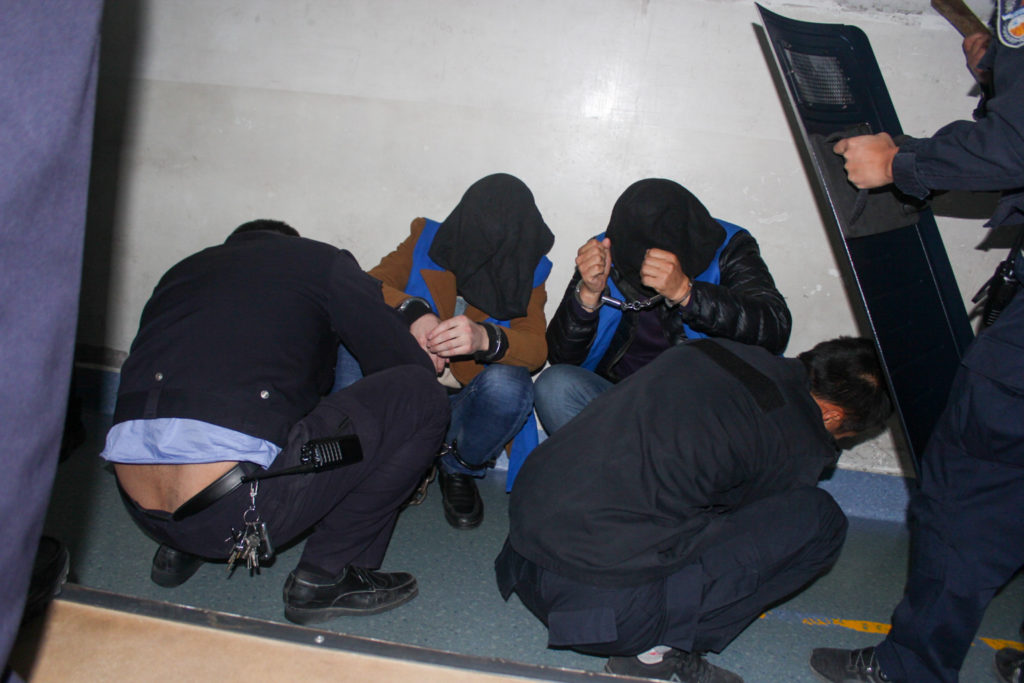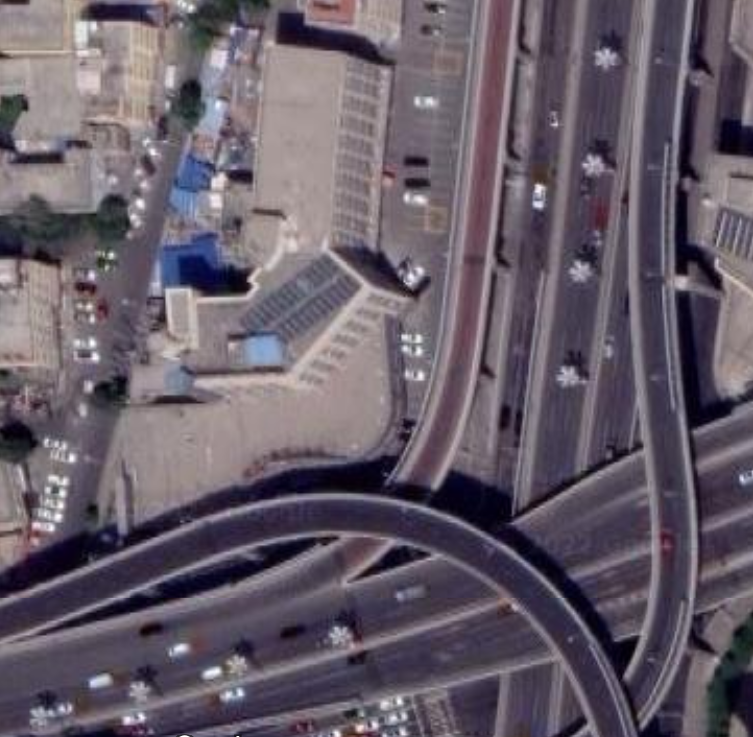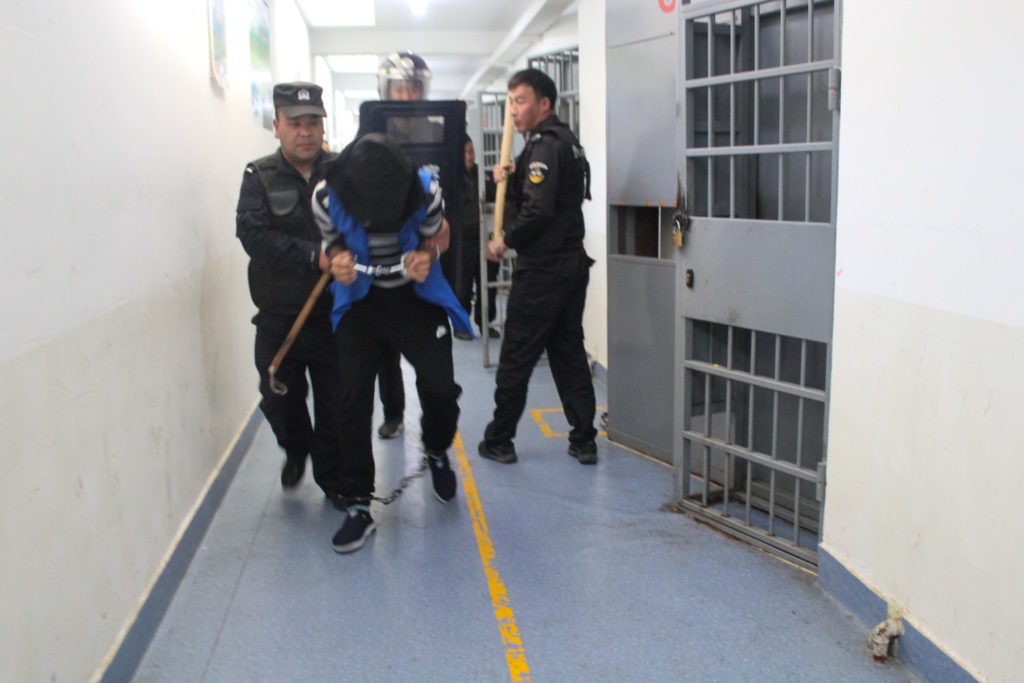Covert Concentration Camps

October 3, 2022
Testimony of a Uyghur Student—Haibib Kerim – Editor/Website Manager, Uyghur Human Rights Project
The information below is collected by Haibib Kerim on October 3rd, 2022 from a series of interviews with an Uyghur student who wishes to remain anonymous for the safety of his family.
“Several days after the July 5th Uyghur Massacre in Urumchi, Chinese police swarmed my uncle, put black bags over his head, and dragged him away to prison,” accounts Yusuf1The author has used a pseudonym to conceal the witness’ identity. What was his uncle Mahmud’s crime? Playing cards in the streets.
“Several days after the July 5th Uyghur Massacre in Urumchi, Chinese police confronted my uncle, put black bags over his head, and dragged him away to prison”
The plight of the Uyghur people came into the public eye after mass media reports on the construction of so-called “Vocational Education Centers.” In reality, these facilities are concentration camps where millions of Uyghurs and Turkic peoples are subjected to rampant and systematic torture. The oppression of the Uyghur people began long before, however, with covert prisons, facilities in remote areas that house Uyghurs imprisoned on false charges and not entered into the official records.
Many of Mahmud’s friends who were playing cards with him on the streets either went missing or were reported dead.2State-sponsored abduction of Uyghur youths was thoroughly reported by the Human Rights Watch Upon receiving news of Mahmud’s arrest, Yusuf’s family rushed to the National Security Detachment of the Urumqi Public Security Bureau (乌鲁木齐公安局国保支队) because it was common knowledge that most of the arrested young men were taken there for processing. When Yusuf’s family requested information on Mahmud’s whereabouts, the bureau informed them that Mahmud was not in their computer systems.

For the next six months, Yusuf’s family was sent from bureau to bureau to no avail. Yet, they never gave up and searched through every local and national police and security department, going so far as to travel to Beijing to plead with the central government, again, to no avail. After many bribes, Yusuf’s family finally found an official who informed them that numerous young men—suspected of being terrorists during the July 5th Uyghur Massacre—were being held at a Detention Center in Miquan County on the outskirts of the city (米泉县收人站).
The family found the warden and ensured Mahmud’s release through more substantial bribes, whereupon he was taken to an emergency room to be treated for organ failure and other injuries. Yusuf described his uncle as having “fingernails half ripped out of his fingers and severely damaged kidneys.”
“fingernails half ripped out of his fingers and severely damaged kidneys”
Miraculously, Mahmud made a partial recovery and told his side of the story. After the civil unrest created by the July 5th Uyghur Massacre, the Chinese Communist Party (CPP) needed to shift the blame away from themselves and came up with the excuse that terrorists organized the July 5th Uyghur Massacre.3UHRP has reported on the CCP’s false narrative around the July 5th Uyghur Massacre Under the guise of anti-terrorism measures, CCP officials began arresting young Uyghur men for simply gathering in small groups. On July 14th, Mahmud had believed the worst of the July 5th massacre to be over but was unfortunate enough to be caught up in this witch hunt when he played cards on the streets with four of his friends.
So many Uyghurs were arrested in that period that the National Security Detachment was unable, or forgot, to enter Mahmud’s information into the computer system and transported him to the detention center to await a trial that would never come. Now, don’t be fooled by the CCP’s propaganda that these centers are temporary housing for those awaiting trial. These inmates are not dancing as the court officials provide them with fair and merciful rulings; they are beaten until they falsely confess to crimes they didn’t commit or dragged to a court with an over 99% conviction rate. For the few who refuse to confess, these “temporary” detention centers are often made their final resting place.
The police interrogated Mahmud for many hours, and when he wouldn’t falsely admit to organizing terrorist activities, they beat him mercilessly. During Mahmud’s six-month detention, he was subjected to daily physical torture and given little to no food or water. The severe damage inflicted on Mahmud’s body and health pushed him to the brink of death. The Miquan County Detention Center was too small to have an infirmary, so the prison officers were instructed to take him to a state hospital. In the prisoner transport vehicle, the officers argued whether they should just shoot Mahmud and leave his body on the side of the road. Luckily, the argument stretched out long enough to bring them close to the hospital, and the officers decided it was easier to push the responsibility onto the hospital personnel.

The treatment he received in the hospital was no better than the prison. He was placed on an old mattress while his limbs were chained to the bedposts. Ticks and bed bugs infested the beds, gnawing at his skin and causing intense itching that he was too restrained to alleviate. Even after escaping from this hellscape, the psychological effects were permanent. Nightmares, PTSD, and night terrors plague him to this day. His family’s bribes were enough to make the police drop the terrorism charges but couldn’t stop them from officially labeling him as a “Possible Danger to National Security.” With such an albatross around his neck, Mahmud couldn’t find a job, leave the province, or even stay in a hotel.
In 2017, Mahmud was taken to a concentration camp because of that label on his record. After two years in the concentration camp, he was released after suffering kidney and liver problems. Throughout the interview, Yusuf’s family used the terms “prison,” “detention center,” and “concentration camp” interchangeably because all these places entailed the same beatings, torture, and suffering inflicted by prison guards. The CCP’s propaganda to distinguish these locations doesn’t matter because all Uyghurs recognize that it is simply an excuse to lock up and kill Uyghurs.
Despite the novelty of the media reports on the plight of Uyghurs, it is vital to recognize that our suffering began decades earlier, arguably from the moment the People’s Liberation Army (PLA) entered the Uyghur homeland. Even during Mao’s Cultural Revolution, Uyghurs faced large-scale discrimination as Mosques and shrines were burned and desacralized.4The Guardian has reported on the desanctification of Mosques during the Cultural Revolution This discrimination continued in the following years as Han migrant workers were relocated and given priority over Uyghurs and other Turkis peoples.5As reported by Coda Media, inequality and segregation are trends that continues to this day Religious suppression and state-sponsored violence were also rampant, demonstrated by the Ghulja and aforementioned July 5th Uyghur massacres.6Amnesty International’s report on the Gulja Massacre Rather than being a new occurrence, human rights violations against the Uyghur people have been a staple of the CCP’s domestic policy.
This is only a singular account of a massive wave of enforced disappearance following the July 5th Uyghur Massacre. Thorough reports on the topic have been released by the Uyghur Human Rights Project and Human Rights Watch.
Photo credits: Xinjiang Police Files.
